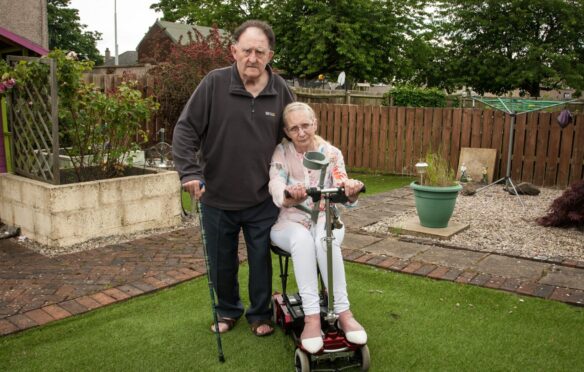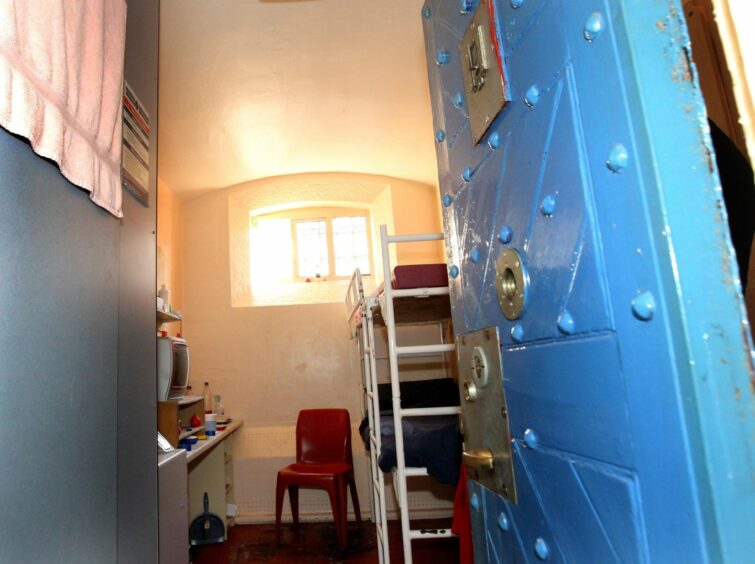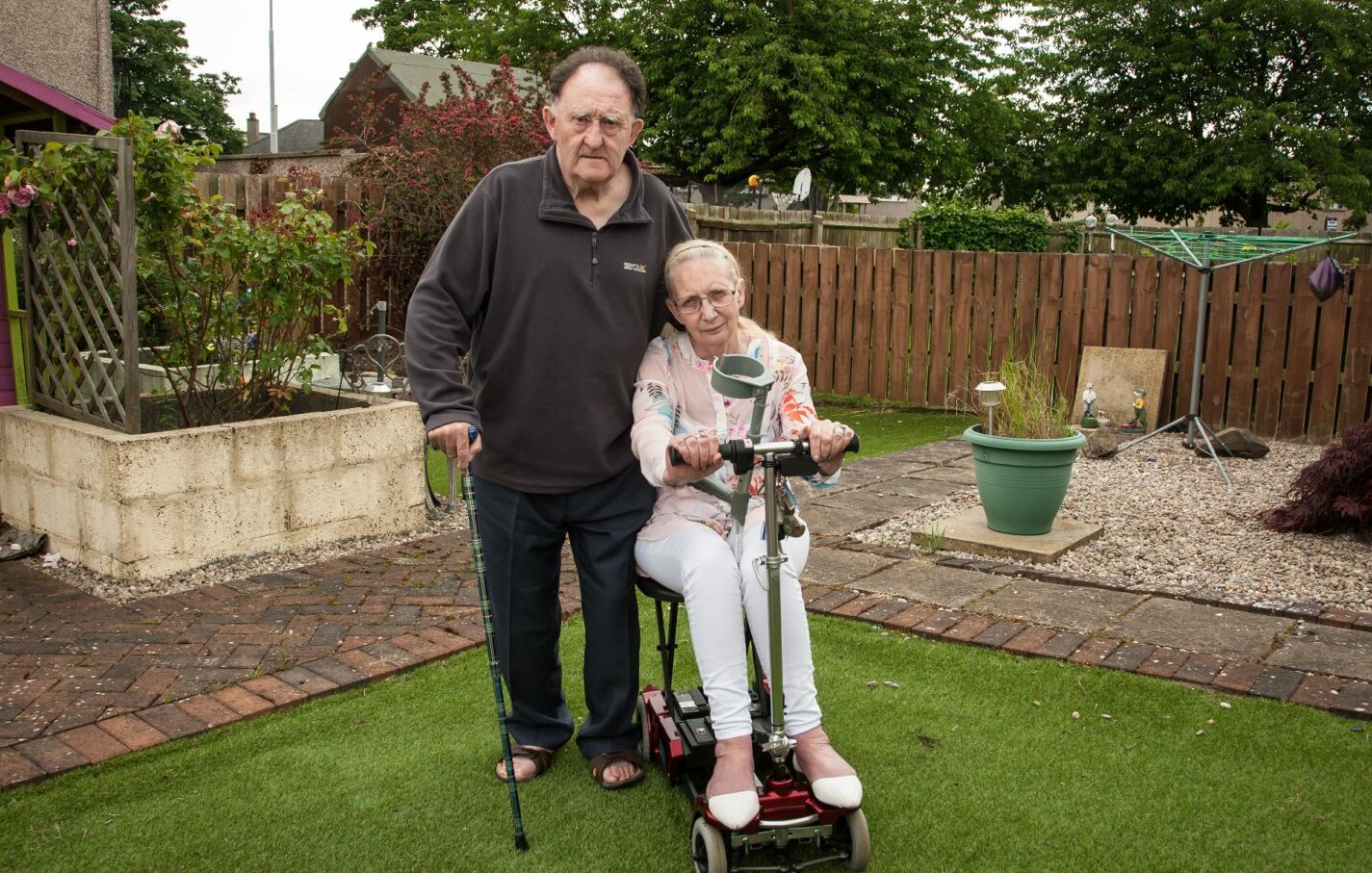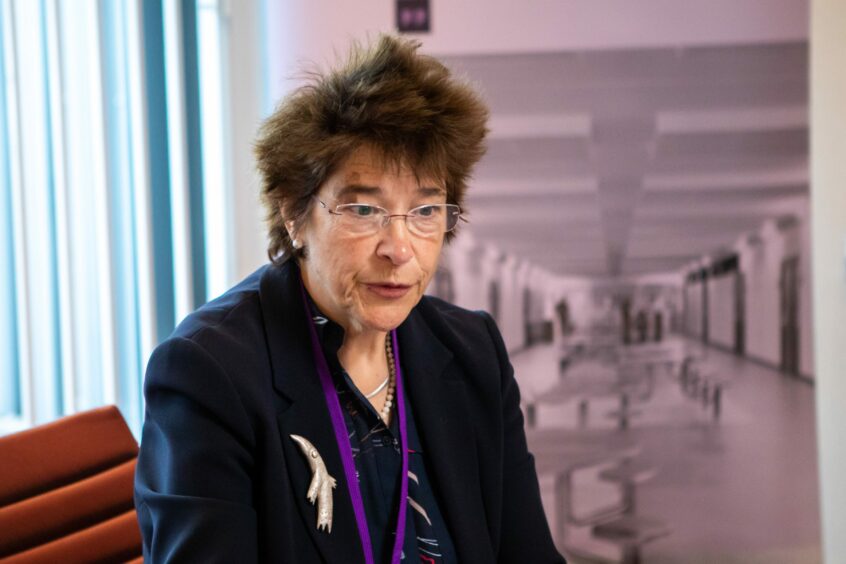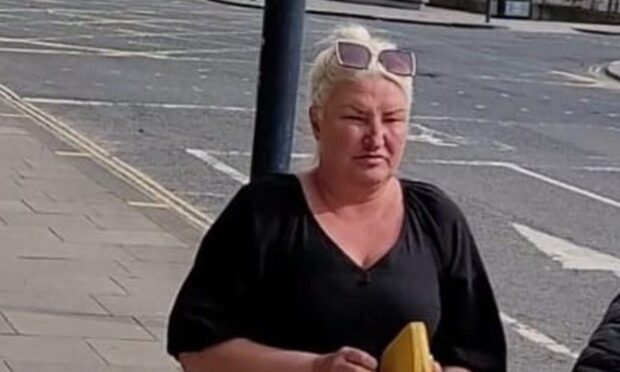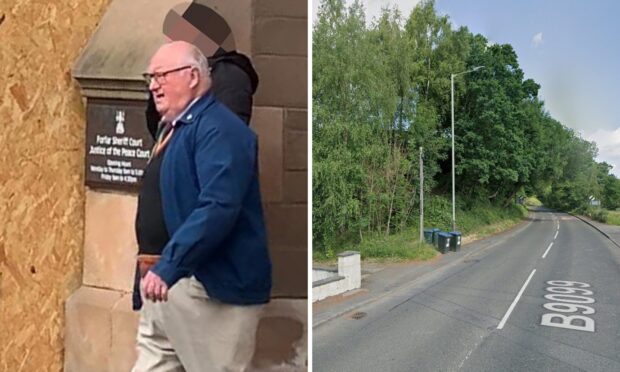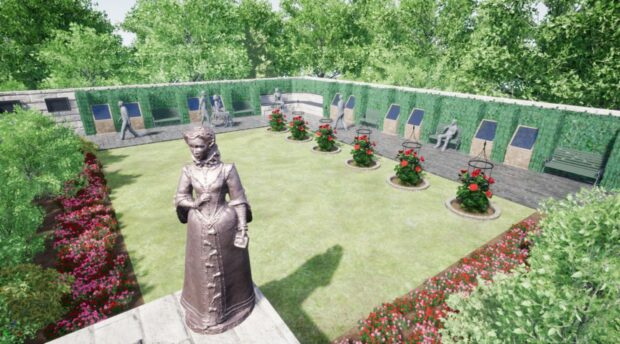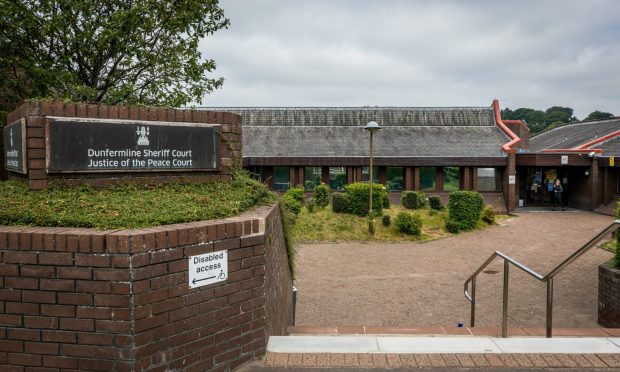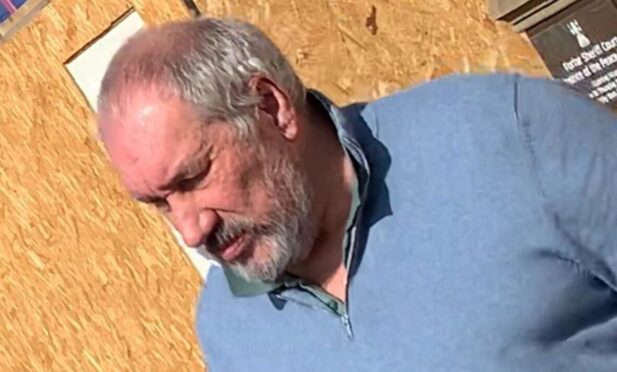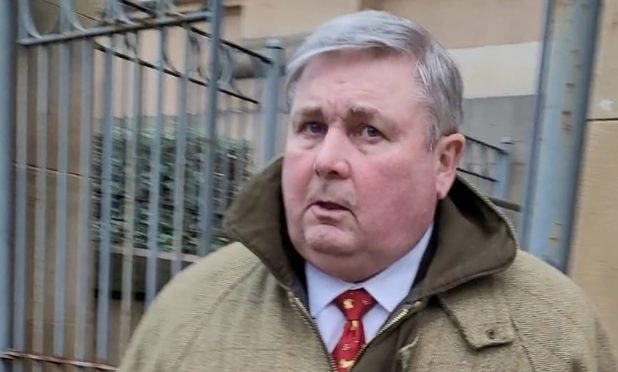The grieving parents of a remand prisoner who died behind bars – who were cruelly snubbed from their son’s memorial service – are calling for radical and compassionate change to the way Scotland’s prisons deal with deaths in custody.
Maxwell Taylor was awaiting trial when he took his own life at HMP Edinburgh.
Dad Stewart, from Rosyth, said he was not informed of his son’s death by prison staff, but instead found out through a friend.
And he said the family were never invited to a memorial ceremony held at the jail – because staff didn’t have their phone number.
Now Stewart and Liz Taylor are backing calls for improvements across the prison estate to lessen the heartache for other families.
It follows an extensive two-year probe by an independent panel into custody deaths.
A lack of training and family trauma
The report, published on Tuesday, was commissioned by Justice Secretary Humza Yousef in 2019 and shaped by 20 families whose loved ones died in custody.
It reveals that frontline prison staff feel underprepared to deal with sudden deaths, while crucial linked-up training between officers and healthcare workers is effectively non-existent.
And the way families are treated in the aftermath of their loved one’s death can lead to even further trauma.
For one parent, the experience was so painful they were diagnosed with PTSD.
Another couple told the inquiry that the policeman sent to inform them of their son’s death was the same officer who had arrested him.
Rosyth family reveal ‘hurtful’ experience
Maxwell Taylor, 34, died in his cell in February 2018, while he was awaiting trial for possession of a bladed weapon.
“We were informed by a police officer friend of ours,” said dad Stewart.
“That was the only contact we had. We had no contact from the prison whatsoever.”
He said: “I spoke to the prison chaplain later and she told us they hadn’t contact us because they didn’t have our phone number.
“Yet they somehow managed to send the police to our door.”
Mr Taylor said: “What was really hurtful was that the prison held a memorial for our son and we knew absolutely nothing about it.
“We only found out last year.”
Mr and Mrs Taylor were part of a family advisory group who helped inform the review.
The report calls for the launch of a new independent body to investigate every death in prison custody.
It recommends that families should be involved at every step of the process, and that the process itself should be made quicker.
Mr Taylor said: “The Scottish Government must endorse these findings completely and then insist that the recommendations are implemented in total, not piecemeal.
“This is not us having a go at individual officers or the prison service in general, but what we found is that there is no joint up writing.”
He added: “During the review, it quickly became abundantly clear that a system or uniform policy which clearly lays out procedures for dealing with such incidents across the prison estate in Scotland was either sadly lacking or not fit for purpose.
“Within our group only one family thought the Prison Service had dealt with them in a compassionate and helpful way.”
Asha’s battle for answers
Asha Anderson was forced to fight for answers when her younger brother Pradeep Bhowmick died at HMP Shotts in 2017.
The cause of the 32-year-old’s death has never been established.
“The post mortem came back as unascertained,” Asha told us.
“There was lots of discrepancies about what happened that day, and a lot of questions left about why staff were not trained enough to open up oxygen canisters, and why defibrillators were not charged enough to provide suction.
“I don’t want this to happen to anyone in the same situation.
“If there was better training in place, Prad would be here today.”
She said: “After it happened, we had to keep phoning the prison just to try and get some answers. There was no one acting as a liaison for us.
“We were lucky enough to push hard enough to be able to go to the prison, see his cell and hold a memorial there. But we just shouldn’t have had to push so hard.”
‘Systematic change is needed’
Wendy Sinclair-Gieben, Chief Inspector of Prisons for Scotland, who co-chaired the review said: “In the time that this review has taken place, dozens of people have died in Scotland’s prisons and hundreds more have been left to deal with the associated grief, trauma and distress.
“It is clear from our review that systemic change is needed in how such deaths are responded to for both families and staff.”
She said: “We have made detailed recommendations that we believe could achieve this change, driving the development of a more humane, compassionate, rights-based response to the loss of life in Scotland’s prisons.
“It is now incumbent on all of those with responsibilities to uphold human rights to take action to implement these recommendations.”
Professor Nancy Loucks OBE, of charity Families Outside, said: “For too many families, the lack of information and answers drags on for months and even years.”
Judith Robertson, of the Scottish Human Rights Commission, added: “The state has the duty to protect the right to life effectively, and, when someone dies in custody, a duty to provide an explanation of the cause of death.”
Review welcomed by prison service
A Scottish Prison Service spokesman welcomed the report. “We recognise the profound emotional distress experienced by families when a loved one dies in custody and anything that can be done to provide information and engage with families is to be welcomed,” he said.
